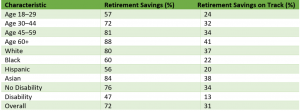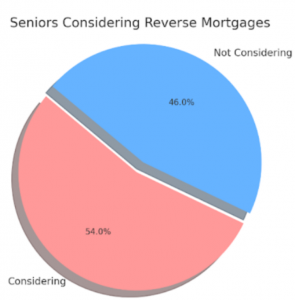
Revealing the Financial Impacts of Housing Decisions on Retirement Security
Housing choices matter most for retirement money. Smart moves add $1,247 monthly. Stay home, get reverse mortgage, move to smaller home, or rent.
CA, UNITED STATES, April 24, 2025 /EINPresswire.com/ -- With 10,000 baby boomers retiring daily, housing choices have become the biggest factor in retirement financial security. Smart housing moves can boost retirees' monthly discretionary income by an average of $1,247. Most retirement planning focuses on investments and Social Security, but housing decisions and tools like reverse mortgages often create the biggest financial impact. The right housing move at the right time can make the difference between struggling and thriving in retirement.
Key Findings on Housing Options:
1. Aging in Place: While 76% of Americans want to remain in their current homes throughout retirement, according to AARP research, this costs about $18,405 yearly in maintenance, taxes, and utilities for homes typically 30-40% larger than retirees need.
Reverse Mortgages: These allowed 64% of qualifying homeowners to stay in their homes while boosting monthly cash flow by about $1,175. They eliminated mortgage payments while preserving ownership.
2. Downsizing: Moving to smaller properties in the same community cut annual housing expenses by 41% (about $7,546) while preserving 83% of community connections.
3. Renting: Renting eliminated maintenance headaches and freed up investment capital, but financial results varied widely by location. In expensive markets like San Francisco and New York, renting increased long-term costs by 27%, while in moderate markets like Phoenix and Charlotte, it reduced lifetime housing costs by 23%.
4. Regional Variations: The financial implications of housing transitions vary significantly by region:
Northeast: Retirees in the Northeast saw the greatest financial benefit from downsizing, with average annual savings of $9,872, primarily due to high property taxes and maintenance costs on larger, older homes. This aligns with U.S. Census Bureau data showing the Northeast has the oldest housing stock in the nation.
5. South: Southern states have the smallest financial differences between housing options, with only a $4,215 yearly gap between the cheapest and most expensive choices.
6. Midwest: Residents benefited most from timing their moves strategically, with early downsizing before retirement providing the greatest lifetime advantage.
7. West: Western states demonstrate the highest variation in outcomes, with coastal areas showing dramatically different financial implications than inland communities for identical housing transitions.
8. Timing Matters:
The timing significantly impacts the financial benefit of housing transitions:
Downsizing 5-7 years before retirement provides 31% greater lifetime financial benefit than waiting until health issues force a move, a finding consistent with research from the Harvard Joint Center for Housing Studies. Proactively planned housing moves lead to 27% better financial results and 42% greater satisfaction with the new home.
Recommendations for Retirees:
Based on the findings, Equity Access Group recommends that retirees:-
1. Analyze the true costs of current housing, including often-overlooked expenses like maintenance, utilities, and future accessibility modifications.
2. Consider the "total cost of living" beyond housing, including transportation, healthcare access, and social opportunities.
3. Evaluate housing options at least 5 years before expected retirement to maximize financial benefits.
4. Explore reverse mortgages as a viable option to access home equity while aging in place, particularly for those with substantial home equity but limited retirement income.
5. Assess how different housing choices affect liquidity and how home equity might generate retirement income.
6. Factor in non-financial considerations like proximity to family, healthcare, and community support.
"Housing is more than shelter - it's a financial tool that can either drain or enhance retirement resources," says Jason Nichols, CMO and partner at Equity Access Group. "Our findings show that thoughtful housing strategies, especially options like reverse mortgages that allow seniors to tap into home equity while aging in place, can significantly improve retirement outcomes when properly timed and executed."
About Equity Access Group:
Equity Access Group specializes in providing financial solutions tailored to the needs of retirees. Our mission is to help seniors achieve financial stability and peace of mind through data-driven retirement planning and innovative financial products. EAG offers personalized consultations to help retirees understand their options and determine the best strategies for their unique situations.
Jason Nichols
Equity Access Group
+1 888-391-4324
info@equityaccessgroup.com
Visit us on social media:
Facebook
Distribution channels: Banking, Finance & Investment Industry, Business & Economy, Education, Insurance Industry, Real Estate & Property Management
Legal Disclaimer:
EIN Presswire provides this news content "as is" without warranty of any kind. We do not accept any responsibility or liability for the accuracy, content, images, videos, licenses, completeness, legality, or reliability of the information contained in this article. If you have any complaints or copyright issues related to this article, kindly contact the author above.
Submit your press release

